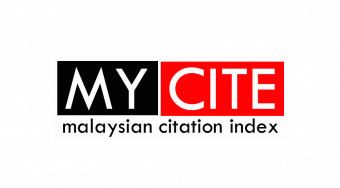Participating in Solid Waste Management Among Household in Terengganu
DOI:
https://doi.org/10.46754/umtjur.v6i4.512Keywords:
Solid waste management, recycling, sustainability, participation, householdAbstract
Solid waste is one of the greatest environmental challenges facing most municipalities in Malaysia. The household sector is the primary source of solid waste in Malaysia, accounting for almost 60% of the total. Other important sources of solid waste include industries, commercials, and institutions. This paper presents the result of the survey among the households in Kuala Terengganu regarding the attitude and participation in Solid Waste Management (SWM). The research argues that to achieve sustainability, public involvement in environmental and solid waste policies is crucial. No programmes or policies can be successful without the involvement of people and grassroots leaders. Thus, this paper will examine household attitudes and participation via a waste recycling programme to deliver a sustainability policy for SWM in Malaysia. To learn more about perceptions and attitudes about waste management, a questionnaire survey was distributed to households in Kuala Terengganu. A list of questions was asked of respondents, such as items from the level of education to personal and social background information. Accordingly, 100 questionnaires were distributed in selected areas in Kuala Terengganu. The survey results indicate a lack of concern among households about participating in recycling activities. The main factors for participation in the recycling programme were educational background, housing conditions, and level of established income. In summary, Terengganu’s SWM system is poor and fragmented. The institutional structure and managerial aspects of SWM are also problematic. As a result, Malaysia’s national SWM strategy is crucial to ensuring its sustainability. Campaigns and educational initiatives are needed to raise public awareness of the issues and effects related to the generation, collection, transportation, and disposal of solid waste.
References
Abdelnaser, O., Mahmood, A., & Aziz, H. A. (2006). A brief case on the attitude of households toward recycling of solid waste in Terengganu state, Malaysia. Paper presented at the International Conference on Infrastructure Development and Environmental, Abuja City, Nigeria.
Agamuthu, P., & Fauziah, S. H. (2011). Challenges and issues in moving towards sustainable landfilling in a transitory country – Malaysia. Waste Management & Research: The Journal of the International Solid Wastes and Public Cleansing Association, ISWA, 29(1), 13-19. https:// doi.org/10.1177/0734242X10383080 DOI: https://doi.org/10.1177/0734242X10383080
Anshassi, M., & Townsend, T. G. (2023). The hidden economic and environmental costs of eliminating kerb-side recycling. Nature Sustainability, 6, 919-928. https://doi. org/10.1038/s41893-023-01122-8 DOI: https://doi.org/10.1038/s41893-023-01122-8
Choon, S. W., Tan, S. H., & Chong, L. L. (2017). The perception of households about solid waste management issues in Malaysia. Environment, Development and Sustainability, 19, 1685-1700. https://doi. org/10.1007/s10668-016-9821-8 DOI: https://doi.org/10.1007/s10668-016-9821-8
Debrah, J. K., Diogo, G. V., & Maria, A. P. D. (2021). Raising awareness on solid waste management through formal education for sustainability: A developing countries evidence review. Recycling, 6(1), Article 6. https://doi.org/10.3390/recycling6010006 DOI: https://doi.org/10.3390/recycling6010006
Evison, T., & Read, A. D. (2001). Local authority recycling and waste-awareness publicity/ promotion. Resources, Conservation and Recycling, 32(3-4), 275-291. https://doi.org /10.1016/S0921-3449(01)00066-0 DOI: https://doi.org/10.1016/S0921-3449(01)00066-0
Gibovic, D., & Bikfalvi, A. (2021). Incentives for plastic recycling: How to engage citizens in active collection. Empirical evidence from Spain. Recycling, 6(2), Article 29. https:// doi.org/10.3390/recycling6020029 DOI: https://doi.org/10.3390/recycling6020029
Grodzinska-Jurczak, M., Tomal, P., Tarabula- Fiertak, M., Nieszporek, K., & Read, A. D. (2006). Effects of an educational campaign on public environmental attitudes and behavior in Poland. Resources, Conservation and Recycling, 46(2), 182-197. https://doi. org/10.1016/j.resconrec.2005.06.010 DOI: https://doi.org/10.1016/j.resconrec.2005.06.010
Izham, S. A. T. M., Shaari, M. F., & Zaman, N. Q. (2023). Public awareness and local culture that influence the engagement of food waste recycling practice in Malaysia. Malaysia Architectural Journal, 5(1), 32- 41. https://www.majournal.my/index.php/ maj/article/download/149/80/357
Latifah, A. G. (2021). Exploring the municipal solid waste management via MFA-SAA approach in Terengganu, Malaysia. Environmental and Sustainability Indicators, 12, Article 100144. https://doi. org/10.1016/j.indic.2021.100144 DOI: https://doi.org/10.1016/j.indic.2021.100144
Ling, M., Xu, L., & Chu, X. (2022). Heterogeneous effects of other-regarding interventions on household recycling: A field experimental study. Journal of Environmental Management, 329, Article 117102. https://doi.org/10.1016/j. jenvman.2022.117102 DOI: https://doi.org/10.1016/j.jenvman.2022.117102
Malaysian Investment Development Authority (MIDA). (2021). The preferred approach for waste management in Malaysia. Official Website Malaysian Investment Development Authority. https://shorturl.at/ hdAhQ
Méndez-Lazarte, C., Victor, W. B-L, Carlos, C-C., & Alfredo, E-M. (2023). Attitude is not enough to separate solid waste at home in lima. Recycling, 8(2), Article 36. https:// doi.org/10.3390/recycling8020036 DOI: https://doi.org/10.3390/recycling8020036
Ministry of Housing and Local Government (MHLG). (2003). Overview of solid waste management in Malaysia, Kuala Lumpur, Malaysia.
Ministry of Housing and Local Government (MHLG). (2005). National Strategic Plan for solid waste management, Kuala Lumpur, Malaysia.
Ministry of Housing and Local Government (MHLG). (2019). Kuala Terengganu local council (Report). Terengganu, Malaysia.
Ministry of Housing and Local Government (MHLG). (2020). Kuala Terengganu local council (Report). Terengganu, Malaysia
Mohd Noor, N. H., Soleman, N. A. F., & Khairul Azuan, A. S. (2023). To recycle or not to recycle? Factors affecting Malaysian residents’ intention for recycling e-waste. Malaysian Journal of Social Sciences and Humanities, 8(2), Article e002102. https:// doi.org/10.47405/mjssh.v8i2.2102 DOI: https://doi.org/10.47405/mjssh.v8i2.2102
Mol, A. P. J. (2000). The environmental movement in an era of ecological modernization. Geoforum, 31, 45-56. DOI: https://doi.org/10.1016/S0016-7185(99)00043-3
Razali, F., Daud, D., Weng-Wai, C., & Jiram, W. R. A. (2020). Waste separation at source behaviour among Malaysian households: The theory of planned behaviour with the moral norm. Journal of Cleaner Production, 271, Article 122025. DOI: https://doi.org/10.1016/j.jclepro.2020.122025
Additional Files
Published
How to Cite
Issue
Section
License
Copyright (c) 2024 Universiti Malaysia Terengganu Journal of Undergraduate Research

This work is licensed under a Creative Commons Attribution-ShareAlike 4.0 International License.




